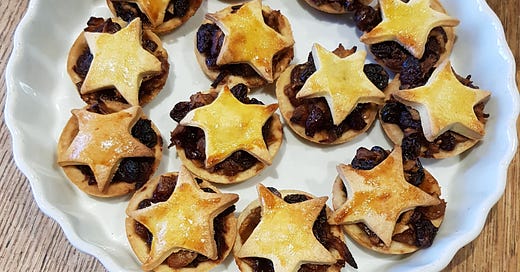I’m never sure how a poem is going to arrive. Some feel like buried treasure, fossils that need to be carefully dug up and cleaned until their form and origin become clear. You stare at the dirty fragments, wondering what sort of beast they are, and how you can assemble them into something that makes sense. You pick up the shards of bone and try different patterns, assembling it first one way and then another. Sometimes it stays a puzzle, frustratingly incomplete, and you throw the bits into a box for later. But if you’re really lucky, the creature comes alive, opens its eyes and roars.
Then there are those that float into your mind like a speck of dust in your eye, irritating you until you stop whatever else you’re doing and pay attention. Tiny little ideas you can barely see, but they crackle and spark, and as you watch they grow into something like a crystal made of words. It’s as though they write themselves, clothing themselves in more and more layers of meaning until the work’s finished, and you stare at the thing in shocked surprise, wondering where on earth that came from.
One dreary day in the pandemic-hit runup to Christmas 2020, I was rolling out pastry for mince pies. My favourite cranberry ones, topped by little star-shaped lids which let the rich caramelised filling spill out like leaked darkness. Baking is supposed to be very bad for poets - famously, Sylvia Plath used to bake cakes as a procrastination strategy when she felt she really ought to be writing. Maybe I do the same, although I like to tell myself it’s edible relaxation. That day, the repeated process of rolling out the dough, cutting out the shapes and then re-rolling to make more was what ignited the spark. Days later I realised that blank expanse of dough had yielded more than the little pies we’d already eaten.
It’s a truism that no-one knows why they’re writing or what they’re writing about until the thing’s finished (often not even then). As I wrote, I had a vague sense that the poem was about absence and memory, the way things can persist even when they no longer exist. That’s why I offered it for inclusion in an anthology called The Sea Is Here: Absence As Presence. And it wasn’t until the poem was in print that I started to realise that it was really an elegy for a friend who’d died.
It wasn’t the first thing I’d written for the late Chris Cornell, the singer and musician I used to work for, and I doubt it will be the last, but it was probably the first time I’d expressed his loss through a cookery metaphor. My emotional landscape had changed in subtle ways in the three years since he’d died in 2017, and something about those negative shapes left in the dough, the stars that were no longer here but still visible in their absence, had donated their imagery. My deep grief had faded to a background hum, as such things must if we are to survive them, and my memories were growing shadowy, iced not with sugar but with snow.
On what would have been Chris’s 59th birthday, I posted the poem on Instagram along with a photo I’d taken from the wings when he played Hyde Park with his band Soundgarden back in 2014. If making a poem is an gradually evolving process, involving readers as well as writers, then contextualising it in that way seemed to finally fix what the poem was about. It was, I suppose, a poem about pain. But it was about sweetness, too.
that was the time of stars
that was the time of stars glittering morsels of life stamped out like miracles from a silver pastry cutter. once they were consumed we had only soft star shapes in the dough, little vanishings defined by their surrounds. we picked up what was left kneaded, pressed and rolled it out anew, a desert plain elastic with unknowing. those stars will not come out again. From what remains we make our pastry shadows, baked memories iced with snow.




